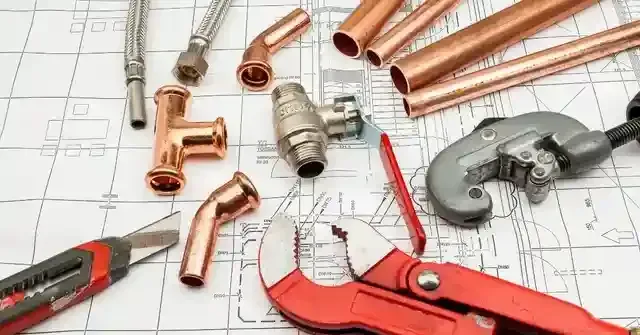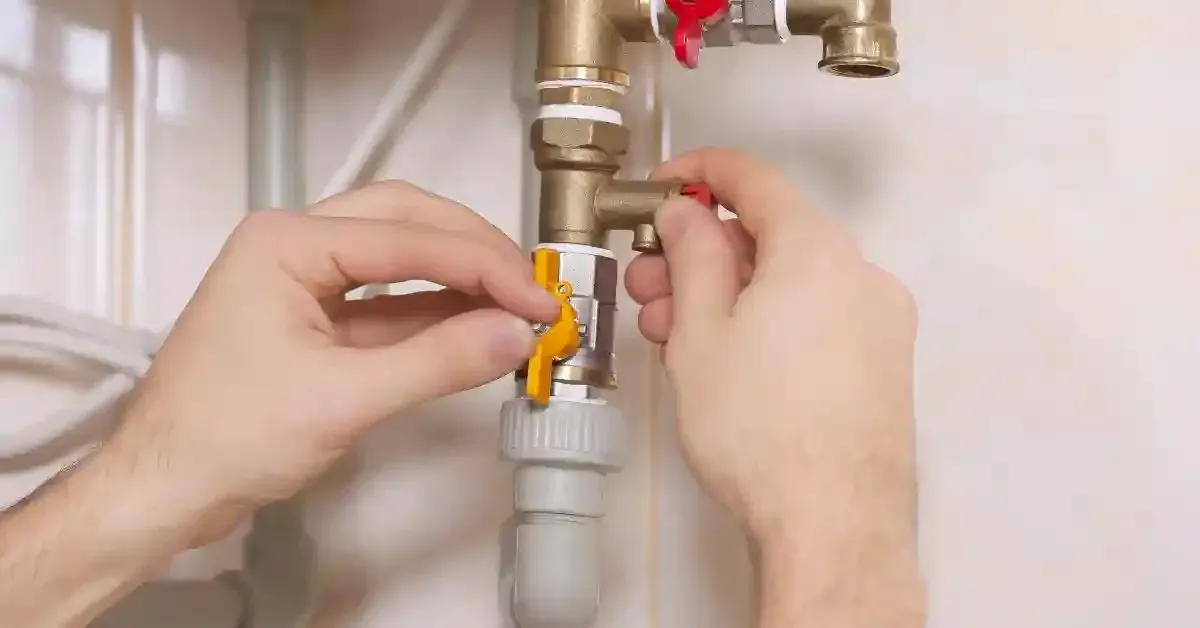Real Talk: Plumbing Tips That Actually Help
Plumbing issues have a way of showing up at the worst times—whether it’s a dripping tap in the middle of the night or a surprise clog before guests arrive. At On Point Plumbing & Building, we’ve seen it all, and we know most people just want honest, no-fluff advice that actually works. That’s exactly what this blog is about. We’re cutting through the jargon and giving you real tips you can use—whether you're tackling a minor fix or trying to prevent a bigger headache down the line. No upsells, no scare tactics—just useful info from folks who do this every day. Let’s get into some straightforward plumbing wisdom that can save you time, money, and a whole lot of stress.

Simple Fixes for Common Plumbing Problems You Can Handle
Plumbing issues can seem overwhelming, but many common problems are simple to fix with the right approach. Leaky faucets, clogged drains, or running toilets are often caused by easily replaceable parts or minor blockages. For example, a dripping faucet might just need a new washer, which is an easy fix you can do yourself with a wrench and a few simple steps. In the case of a slow drain, a plunger or even a homemade mixture of baking soda and vinegar can often clear the blockage. These simple fixes can save you the cost of a plumber and give you a sense of accomplishment.
Learning a few essential skills like how to turn off your water supply or how to replace basic components can save you in the event of an emergency. The more you understand the basics, the less stressful plumbing problems become.
How to Prevent Costly Plumbing Emergencies Before They Happen
Preventing plumbing problems before they become full-blown emergencies is key to saving money and avoiding stress. Regularly checking for leaks around pipes, faucets, and toilets can help you spot small issues early, preventing water damage or mold growth. Cleaning your drains periodically also helps avoid costly clogs. For example, pouring hot water down the drain once a week can clear grease and debris that may cause blockages. Keeping an eye on these things can help you identify issues before they escalate, saving you from more expensive repairs or replacements later on.
Another important practice is inspecting your water heater and pipes for signs of wear. Sediment build-up in a water heater can shorten its lifespan, leading to a breakdown when you need hot water the most.
Quick DIY Plumbing Tips That Actually Save You Money
There are plenty of small plumbing fixes that you can do yourself, saving you both time and money. For example, if you have a clogged drain, try using a plunger or a homemade solution of baking soda and vinegar to clear it. This can often resolve minor clogs without the need for a store-bought cleaner or calling a plumber. If a toilet is constantly running, it might just need a simple adjustment to the flapper valve, something you can do in minutes with a few basic tools. These small fixes are often all it takes to get things back in working order.
Additionally, learning how to replace parts like faucet washers or toilet handles can save you the cost of professional repairs. If you know the basic workings of your home’s plumbing, many common issues become much easier to fix on your own.
The Tools Every Homeowner Should Have for Plumbing Jobs
When it comes to plumbing, having the right tools can make all the difference. A basic toolset for plumbing should include a pipe wrench, adjustable spanner, plunger, and basin wrench. These tools will allow you to tackle a wide range of issues, from tightening loose fittings to clearing minor blockages in your drains. Additionally, pipe tape is essential for preventing leaks around threaded pipes, while a small pipe cutter can help you replace sections of damaged pipe. Investing in a few quality tools now can save you from needing a plumber’s help in the future.
It’s also helpful to have a set of pliers, a flashlight, and a bucket to catch any excess water when working around pipes. These tools aren’t only necessary for repairs—they also give you peace of mind, knowing that you can quickly address minor plumbing problems before they become major issues.
When to Call a Pro: Avoiding DIY Disasters
While DIY plumbing can save you money, some issues are best left to the professionals. Major leaks, gas line problems, and serious drain clogs often require specialized tools and knowledge. For instance, if you notice a substantial leak behind your walls or in your ceiling, attempting to fix it without the proper expertise could lead to further damage and expensive repairs. Similarly, gas line issues, such as a gas smell or suspected leak, should never be handled on your own due to safety concerns. In these cases, it's always better to call in a professional plumber.
Another instance when to call a pro is when a drain clog persists despite your best efforts to clear it. Deep blockages can sometimes be the result of damaged pipes or more complex issues within your plumbing system.
Understanding Your Pipes: A Homeowner’s Guide to Plumbing Basics
Knowing the basics of your plumbing system can help you avoid major issues down the road. Start by familiarizing yourself with where your water shut-off valve is located. In an emergency, such as a burst pipe, shutting off the water quickly can save you from severe water damage. Additionally, understanding what types of pipes are in your home—whether it’s copper, PVC, or PEX—helps you recognize potential issues like corrosion or leaks. Knowing the age of your plumbing can also give you insight into when to replace old or deteriorating pipes.
As you learn more about your plumbing system, take note of common issues that may arise with certain materials. For example, copper pipes can develop pinhole leaks over time, while PVC pipes may become brittle and crack in cold temperatures.
Why Regular Plumbing Maintenance Keeps Your Home Running Smoothly
Regular plumbing maintenance isn’t just about fixing issues as they arise—it’s about preventing problems before they become costly repairs. Simple steps like inspecting pipes for leaks, clearing out drains, and checking for any signs of corrosion can keep your plumbing system running smoothly. By being proactive, you can catch small issues early, avoiding the need for major fixes later. For example, cleaning your water heater periodically helps extend its life and ensures that it’s working efficiently. Regular maintenance reduces the chances of unexpected plumbing failures and can increase the overall longevity of your plumbing system.
Another benefit of routine plumbing maintenance is that it keeps your home’s water quality in check. Over time, sediment can build up in your water heater, leading to inefficient heating and even water contamination. Flushing your water heater helps maintain its efficiency and ensures you have clean water. Additionally, checking your home’s water pressure and making sure your pipes are secure can prevent leaks and minimize water damage.
Save Time and Money: Plumbing Hacks You Wish You Knew Sooner
There are plenty of simple, yet effective, plumbing hacks that can save you both time and money. For instance, using a coat hanger to dislodge small blockages from your drains can be a quick and effective solution, especially for minor clogs that don't require professional attention. A common issue, like soap scum buildup in your shower drain, can often be cleared with a mix of baking soda and vinegar—no harsh chemicals needed. These small but practical tricks can make daily plumbing maintenance much easier and help you avoid unnecessary repairs.
Another helpful hack is preventing clogs in the first place. Installing a hair catcher in your shower or a drain cover in the sink can prevent debris from entering the pipes and causing blockages. Additionally, flushing your drains with hot water once a week can help break down grease and soap residue that leads to buildup.
Conclusion
By now, you’ve got some solid plumbing tips to keep your home running smoothly without the need for a professional every time something goes wrong. Simple fixes and a little maintenance can save you money and prevent major headaches down the road. But, if you’re ever in doubt or face a plumbing issue that feels out of your league, don’t hesitate to reach out. The experts at On Point Plumbing & Building are always here to help with any plumbing needs in Doylestown, PA, and surrounding areas.
For fast, reliable service, give us a call today at 267-263-7673. Let us handle the tough stuff while you focus on enjoying your home!
You might also like
Why Plumbing is a Good Career: From Training to Success




